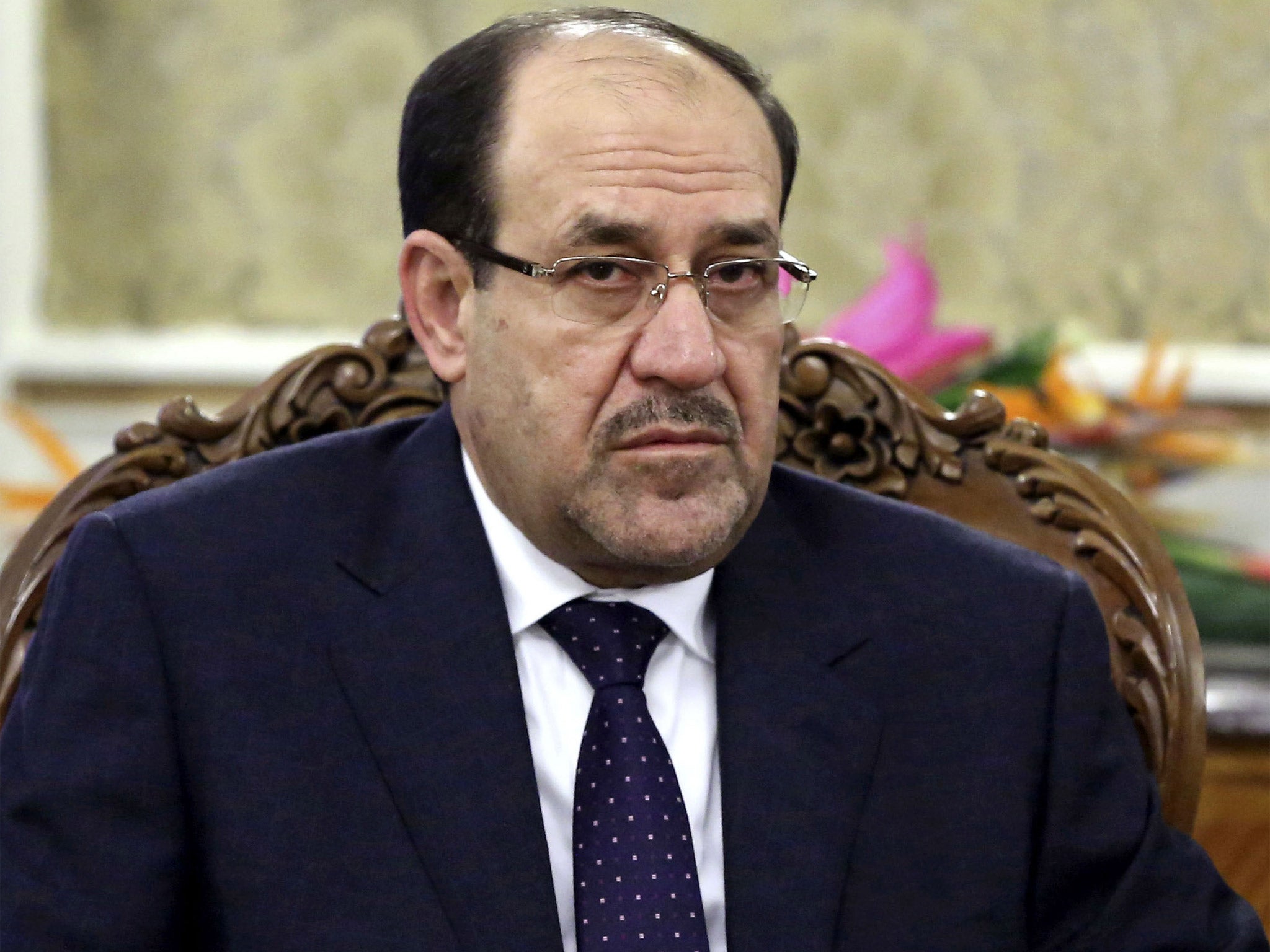Iraq crisis: Isis's declaration of an Islamic state is a threat to the entire Middle East, claims PM Nouri al-Maliki
The extremist group’s recent gains have sent tremors across the region, particularly in neighbouring Saudi Arabia, Jordan and Iran

Your support helps us to tell the story
From reproductive rights to climate change to Big Tech, The Independent is on the ground when the story is developing. Whether it's investigating the financials of Elon Musk's pro-Trump PAC or producing our latest documentary, 'The A Word', which shines a light on the American women fighting for reproductive rights, we know how important it is to parse out the facts from the messaging.
At such a critical moment in US history, we need reporters on the ground. Your donation allows us to keep sending journalists to speak to both sides of the story.
The Independent is trusted by Americans across the entire political spectrum. And unlike many other quality news outlets, we choose not to lock Americans out of our reporting and analysis with paywalls. We believe quality journalism should be available to everyone, paid for by those who can afford it.
Your support makes all the difference.An extremist group’s declaration of an Islamic state in territory it has seized in Iraq and Syria poses a threat to the entire region, Iraq’s Prime Minister has warned, saying that “no one in Iraq or any neighbouring country will be safe from these plans”.
The Islamic State of Iraq and the Levant (Isis) announced this week that it has unilaterally established a caliphate in the areas under its control. It declared the group’s leader, Abu Bakr al-Baghdadi, the head of its new self-styled state governed by sharia law, and demanded that all Muslims pledge allegiance to him.
In his weekly address, Iraq’s Prime Minister, Nouri al-Maliki, said the militant group’s announcement “is a message to all the states in the region that you are inside the red circle now”.
With the support of other Sunni militants, the extremist group has overrun huge swaths of northern and western Iraq in recent weeks, including the country’s second-largest city, Mosul.
The blitz across Iraq appears to have crested, at least for now, as it reaches Shia-majority areas, where resistance is tougher, and as it seeks to consolidate its control of the territory already in hand.
In what appeared to be a bid to peel away some of the extremist group’s allies among Iraq’s Sunni tribes, Mr Maliki offered an amnesty “for all tribes and people who got involved in any act against the state”. “They should return to their senses. We are not excluding anybody, even those who committed misdeeds, apart from those who killed or shed blood,” he said. “I welcome them to return and stand with the other tribes that have taken up arms.”
Mr Maliki offered a similar amnesty after militants seized two cities in central Iraq early this year, but few if any Sunnis took up his offer.
With its recent gains, Isis now controls land stretching from northern Syria to the outskirts of Baghdad. That has sent tremors across the region, particularly in neighbouring Saudi Arabia, Jordan and Iran.
AP
Join our commenting forum
Join thought-provoking conversations, follow other Independent readers and see their replies
Comments